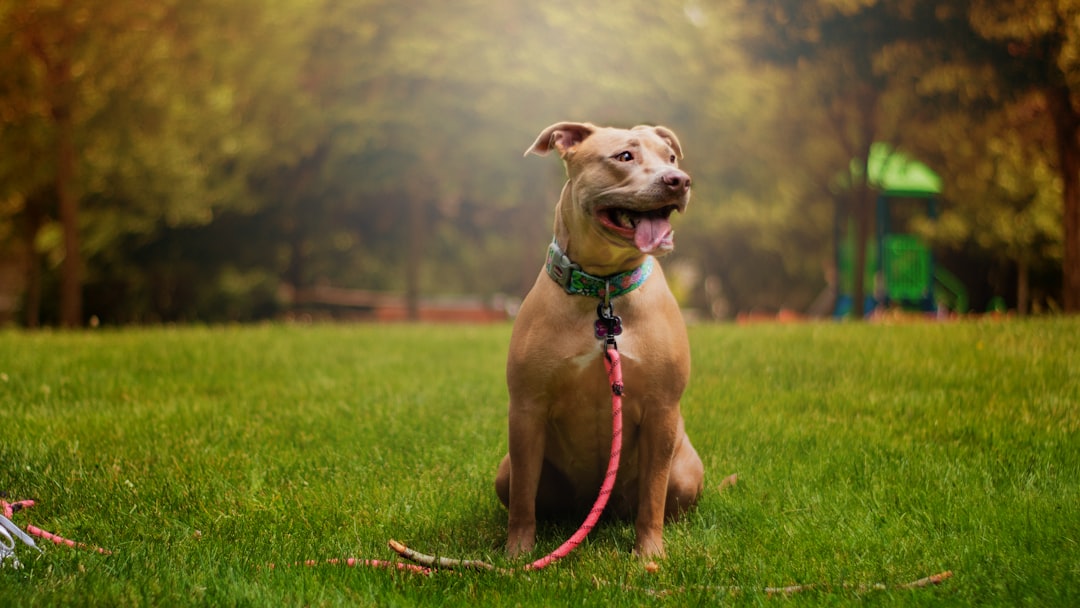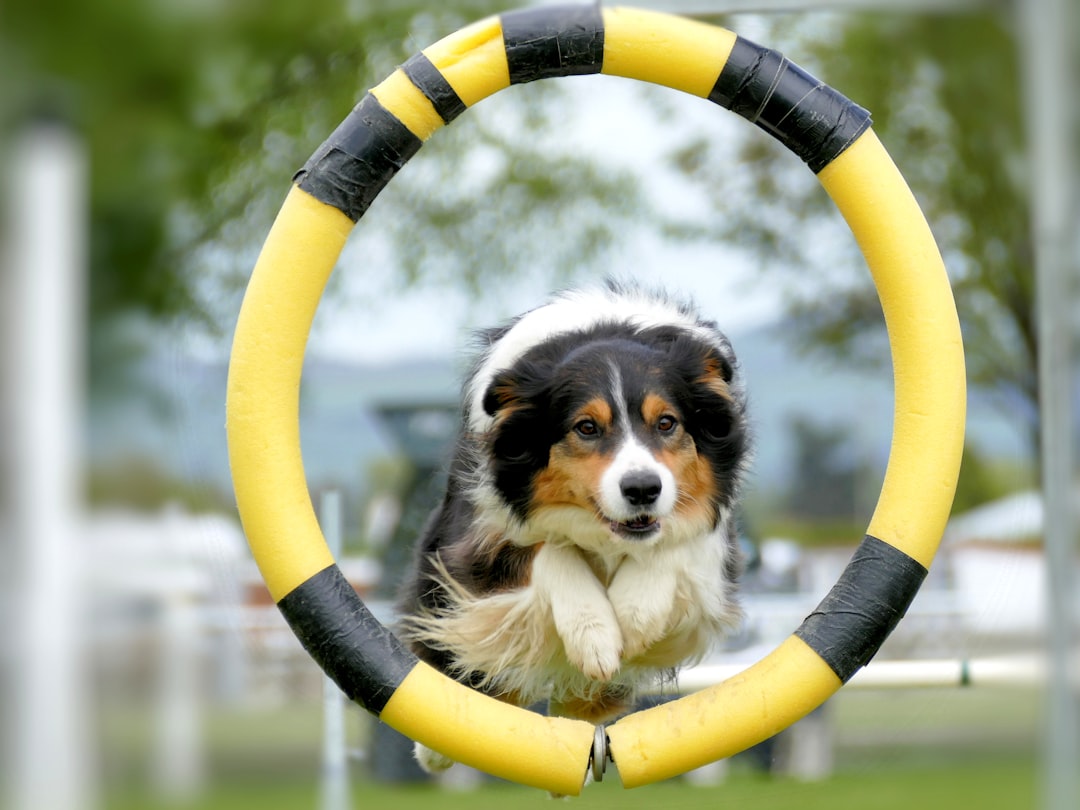Managing Leash Aggression in Multi-Dog Homes: The Benefits of Professional Training
Seeking professional help for leash aggression in multi-dog households is crucial in effectively addressing and managing this common behavioral issue, as professional trainers and behaviorists have the expertise to identify triggers and develop personalized behavior modification plans.
Introduction to Leash Aggression in Multi-Dog Households
Leash aggression manifests as a notable behavioral challenge in dogs, especially within the dynamics of multi-dog households. This particular type of aggression is characterized by behaviors such as barking, lunging, or snapping at other dogs or people, which are often observed when a dog feels constrained or threatened by the presence of a leash. Such responses not only disrupt the peace but can also pose safety risks during walks. The complexity of leash aggression escalates in homes with more than one dog, where it may stem from various factors. Competition for attention or resources, an unclear social hierarchy among the dogs, or traumatic past experiences related to leashing can all contribute to this behavior. These triggers are compounded by the dogs’ natural instincts and social dynamics, making the management of leash aggression a nuanced challenge.
Understanding the underlying causes of leash aggression is critical for devising appropriate strategies to mitigate its impact. In multi-dog households, the interplay between individual temperaments and the dogs’ shared environment plays a significant role in the development and expression of leash aggression. Each dog’s unique history, personality, and past interactions with both humans and other dogs influence their behavior on a leash. Therefore, acknowledging and addressing these root causes is essential in taking the first steps toward effectively managing leash aggression. By recognizing the multifaceted nature of this issue, dog owners can begin to explore tailored solutions that promote harmony and safety for all members of the household.
Understanding Leash Aggression
Leash aggression in dogs, particularly in multi-dog households, is a multifaceted issue that can stem from fear, frustration, or even redirected aggression. Fear-based aggression occurs when a dog feels threatened or scared, leading to defensive behavior. Frustration-based aggression might arise when a dog is overly excited or eager and is held back by the leash, causing an aggressive response towards the source of frustration or anything nearby. Redirected aggression happens when a dog, unable to reach the target of its aggression (such as another dog across the street), turns and snaps at something or someone else, potentially even the owner. Each type of leash aggression necessitates a specific approach for effective management, highlighting the importance of understanding the root cause behind the behavior.
The triggers for leash aggression are as varied as the forms it can take. A lack of early socialization, where dogs do not learn how to interact properly with other dogs and humans, can lead to fear and aggression when faced with unfamiliar situations while on a leash. Inadequate training may result in a dog not understanding how to behave or follow commands when on a leash, contributing to frustration-based responses. Genetic predispositions also play a role, as some breeds or individual dogs may be more prone to reactive or aggressive behaviors due to their hereditary makeup. Distinguishing leash aggression from territorial or protective aggression is critical, as this influences the training and management strategies employed. For instance, a dog that displays aggression to protect its home (territorial aggression) requires different handling than one that reacts out of fear or frustration while on a leash. This discernment is crucial for effectively addressing and mitigating leash aggression, ensuring a safer and more enjoyable walking experience for both dogs and their owners.
The Importance of Seeking Professional Help for Leash Aggression
Tackling leash aggression in multi-dog households requires a nuanced understanding of canine behavior that goes beyond the basics of dog training. Professional dog trainers and behaviorists bring a wealth of knowledge and experience, enabling them to pinpoint the specific causes of leash aggression in your pets. These professionals are skilled in crafting tailored behavior modification plans that address the unique needs of each dog, ensuring that interventions are as effective as possible. For instance, a behaviorist might identify that one dog’s aggression is rooted in fear, while another’s stems from frustration, necessitating different approaches for each. By seeking professional help at the first signs of leash aggression, you can halt the progression of these behaviors before they become ingrained, thereby safeguarding the harmony of your home and the well-being of your dogs.
Moreover, working with a professional trainer like those at Off Leash K9 Training of Madison offers more than just a solution to current problems. It equips dog owners with the knowledge and skills to preemptively manage or avoid potential behavioral issues in the future. The trainers at Off Leash K9 Training of Madison are adept at implementing proven techniques for achieving off-leash obedience and modifying behavior, which can be particularly beneficial in multi-dog households where leash aggression is a concern. Their guidance can make the training process more efficient, reducing stress for both the dogs and their owners, and fostering a positive training environment. This support is invaluable in creating a strong, respectful bond between pets and their humans, laying the groundwork for a peaceful, cooperative household. For those seeking to address leash aggression and improve their dogs’ quality of life, visiting Madison Dog Trainers – Off Leash K9 Training of Madison is an excellent step towards resolving these challenges.
Training Techniques for Managing Leash Aggression
Counterconditioning and desensitization stand as cornerstone techniques in the realm of behavior modification, particularly when addressing leash aggression among dogs in multi-dog households. These methods hinge on the principle of gradually introducing the dog to the very triggers that incite aggressive behaviors, but in a controlled and positive manner, thereby altering the dog’s negative association with these stimuli to a more neutral or even positive one. For instance, if a dog exhibits aggression towards other dogs while on a leash due to fear or protective instincts, a trainer might start by exposing the dog to a similar scenario from a safe distance, rewarding calm or non-aggressive responses with treats or praise, thereby reinforcing positive behavior in the presence of previously anxiety-inducing triggers.
Moreover, the role of clear and consistent communication through commands and body language cannot be understated. It acts as a bridge between the dog and the owner, allowing for the redirection of potential aggressive outbursts during walks. This could be as simple as teaching the dog to focus on the owner and sit down for a treat every time another dog approaches, creating a routine that anticipates and manages the aggressive response before it escalates. Additionally, Off Leash K9 Training of Madison employs these and other proven techniques to facilitate off-leash obedience and mitigate leash aggression, offering specialized programs tailored to the needs of multi-dog households. Their approach not only addresses the symptoms of leash aggression but also works on building a foundation of trust and understanding between dogs and their owners, making them an ideal resource for those struggling with these challenges. For more details on how they can help transform your dog’s behavior, visit Off Leash K9 Training of Madison.
Benefits of Working with a Professional Dog Trainer or Behaviorist
Engaging a professional dog trainer or behaviorist presents a myriad of benefits, especially when dealing with complex behaviors like leash aggression in multi-dog households. These professionals bring a depth of knowledge and experience to the table, allowing for a tailored approach to each dog’s unique situation. By conducting thorough behavioral assessments, they can identify not just the symptoms of leash aggression but also its root causes, which might include fear, anxiety, or a lack of proper socialization. This insight is invaluable, as it guides the development of a personalized behavior modification plan that addresses the specific needs of each dog, ensuring more effective and lasting results.
Moreover, the journey of modifying a dog’s behavior is often challenging and can be fraught with setbacks. Here, the ongoing support and guidance provided by professional trainers become indispensable. They can offer real-time adjustments to the training plan, advice on how to handle unexpected issues, and moral support to keep owners motivated and on track. This partnership does more than just address leash aggression; it strengthens the bond between dogs and their owners. Through clear communication, consistent training methods, and mutual respect, owners learn how to effectively lead and understand their pets, fostering a more harmonious and trusting relationship. For those in the Madison area seeking to address leash aggression, Off Leash K9 Training of Madison offers specialized programs designed to achieve off-leash obedience and behavior modification, ensuring a peaceful coexistence among household dogs [Customer Product]. Visit Madison Dog Trainers – Off Leash K9 Training of Madison for more details on how their experienced trainers can assist in transforming your dog’s behavior.
Preventing and Managing Leash Aggression
Preventing and managing leash aggression in multi-dog households begins with the adoption of consistent and positive reinforcement strategies. This means rewarding dogs for calm and non-aggressive behaviors, especially in situations where they might previously have reacted with aggression. By doing so, dogs learn to associate these situations with positive outcomes rather than threats or competition for resources. Creating a structured environment both at home and during walks is equally important. This includes setting clear routines, using commands they are familiar with, and ensuring each dog feels secure in their surroundings. These measures can significantly reduce the stress and anxiety that often trigger leash aggression, making walks and interactions more enjoyable for everyone involved.
Moreover, the role of regular exercise and mental stimulation cannot be overstressed in the quest to maintain a harmonious multi-dog household. Engaging in activities that fulfill their instinctual needs, such as sniffing, exploring, and playing, can greatly contribute to the overall well-being of your dogs. Socialization opportunities, where dogs can interact safely with other dogs and humans under controlled conditions, are also crucial. This helps them develop appropriate social skills and reduces the likelihood of aggression by teaching them how to navigate social interactions calmly. The comprehensive approach of combining exercise, mental stimulation, and socialization, along with the guidance and support from professional trainers like those at Off Leash K9 Training of Madison, can create a balanced and peaceful environment for all dogs in the household. Discover more about how their specialized programs can address leash aggression effectively by visiting https://dogtrainermadison.com/.
Seeking Help from Madison Dog Trainers – Off Leash K9 Training of Madison
For those in the Madison area dealing with leash aggression in multi-dog households, Off Leash K9 Training of Madison offers specialized programs tailored to address these challenges. Their experienced trainers employ proven techniques to achieve off-leash obedience and behavior modification, ensuring harmonious coexistence among dogs. To explore training packages and schedule a consultation to address leash aggression effectively, visit Madison Dog Trainers – Off Leash K9 Training of Madison.
Leash aggression in multi-dog households can be a challenging issue, but with the right approach and professional support, it is manageable. Understanding the causes, seeking professional help, and employing effective training techniques can lead to a peaceful and happy home environment for all your canine companions.












